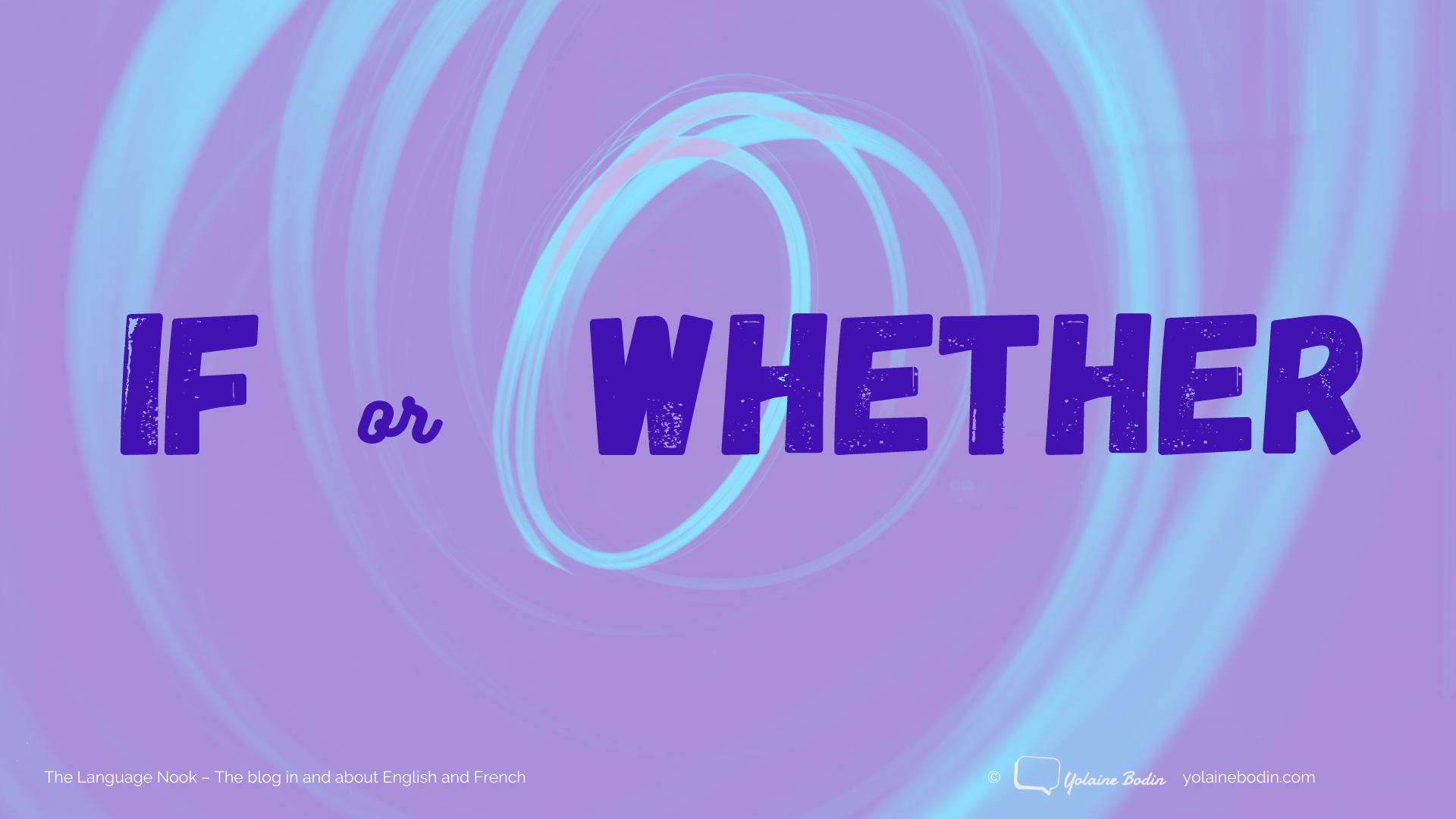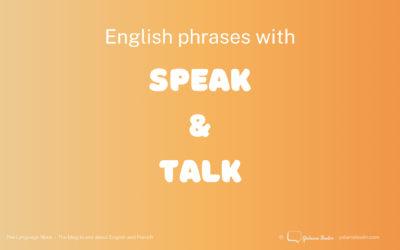If you have attended English classes, the chances are you learnt the word if quite early on. Later, you may have learnt the word whether. That is when you were probably told that the meaning is the same and that you can use whether instead of if, but not always. It is true they are similar in meaning but they are not always interchangeable.
If you want the easiest rule to remember and to be sure not to make a mistake, then just remember this:
Does it introduce a CONDITION? Yes No Use IF Use WHETHER
Now, if you want to learn more and go into more detail to better understand the difference between whether and if, let’s look at when to use one or the other.
Use if to introduce a condition:
- I’ll go if you go.
- If she wanted, she could walk to work.
- If he had known, he would have done things differently.
Use use either if or whether in reported indirect yes/no questions.
Indirect questions often –but not always– start with verbs like ask, wonder, or phrases that include know, find out. Look at these examples:
- She asked if/whether I wanted to go skiing with her.
- I wonder if/whether this shop is open on Sundays.
- He wants to know if/whether he can take a day off.
- We need to find out if/whether we are allowed to take photos.
- I’m not sure if/whether they got my message.
Whether is more common to express two sides of an alternative.
In this case, the sentence often finishes with “or not”; if it doesn’t, you can easily add it without changing the meaning. It will actually clarify the fact that there are two sides or two choices. Here are a few examples:
- Please tell me whether you want to come or not
- Please tell me whether you want to leave or stay.
- You’ll have to do this whether you like it or not.
Let’s compare these two sentences:
- He isn’t sure if / whether he has to leave today. → here both if and whether are possible without changing the meaning of the sentence.
- He isn’t sure whether he has to leave today or tomorrow. → here, we use whether because it introduces two alternatives.
Careful! Use whether when there are two choices, but if there are more, then use if. Indeed, whether is limited to two sides or choices only, never more than two! The following sentences are examples with more more than two alternatives, which is why we need to use if:
- I’m not sure if the meeting with the new team is this morning, this afternoon or tomorrow.
- It would be nice to know if it’s going to be easy, difficult or just impossible.
Always use whether after a preposition (about, in, on, of, etc):
- We talked about whether we really needed to buy a new car.
- He is interested in whether the authorities will consider changing the rules.
- She had to make a decision on whether she would stay for the weekend.
- It’s not a question of whether you want to, you’ll have to do it.
Always use whether before a full infinitive (preceded by to)
- I don’t know whether to stay or go.
- She’ll have to decide whether to accept the job (or not)
- I was wondering whether to make coffee now or later.
Here you are! You now know the difference between if and whether, congratulations! 🙂





0 Comments